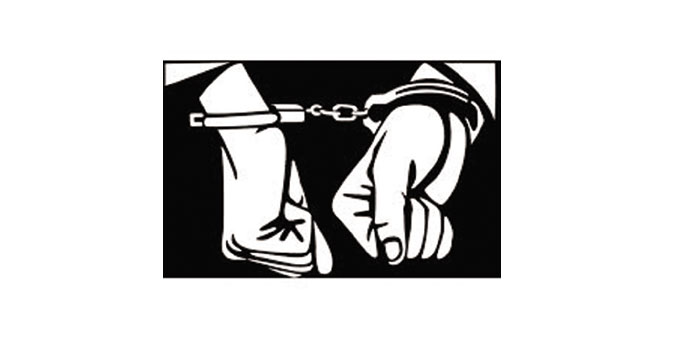Guardian News and Media/Bogota
The captain of a Hong Kong-flagged cargo ship has been arrested in the Colombian port city of Cartagena, charged with arms trafficking for transporting undocumented large-calibre munitions, reportedly bound for Cuba.
The captain of the Da Dan Xia, a Chinese national identified as Wu Hong, was captured after authorities found 100 tonnes of gunpowder and 3,000 artillery shells among other munitions, an official from the attorney general’s office told reporters.
The vessel was stopped on Saturday after authorities discovered the unregistered materials in eight shipping containers during inspection.
“Around 100 tonnes of gunpowder, 2.6mn detonators, 99 projectiles and around 3,000 cannon shells were found,” the national director of the attorney general’s office, Luis González, said.
The documentation presented by the ship’s crew made no mention of the ammunition on board and instead listed the contents as chemicals and spare parts.
“The documentation that the captain had in regards to the merchandise that was being transported in the China-flagged vessel did not correspond to what we found,” Gonzalez said.
China’s foreign ministry said yesterday that the ship had been involved in “normal trade co-operation”. Hua Chunying said the ship was carrying ordinary military supplies to Cuba and was not in violation of any international obligations.
After stopping in Cartagena the vessel was bound for another Colombia port, Barranquilla, and then to Havana, Cuba.
Photos of the crates containing the gunpowder, published by the Cartagena newspaper El Universal, showed they were destined for a company called TecnoImport in Cuba, which according to several blogs is a procurement branch of the Cuban armed forces.
The company officially lists itself as an importer of machinery and industrial products. The supplier is listed on the crates as Norico, a Chinese manufacturer of machinery and chemical products, as well high-tech defence products.
Cuba is currently pushing the US to remove it from a list of state sponsors of terrorism, amid talks between the two countries aimed at normalising diplomatic relations.
The US first included Cuba on the list in 1982, accusing the communist government of sheltering members of militants including members of the Basque separatist group Eta and leftwing Colombian rebels.

